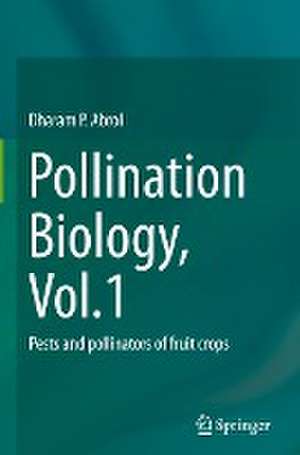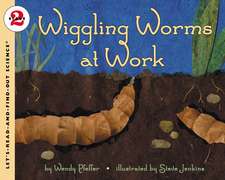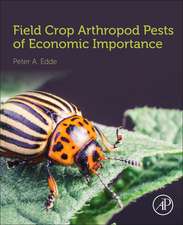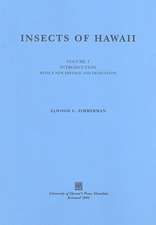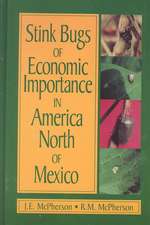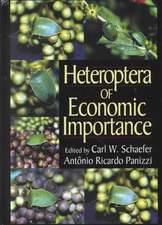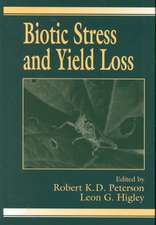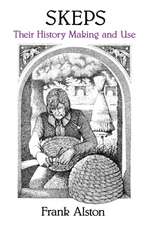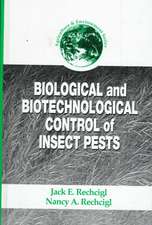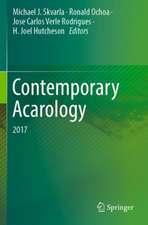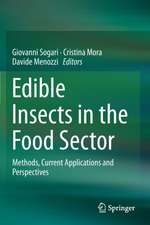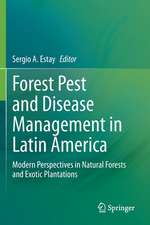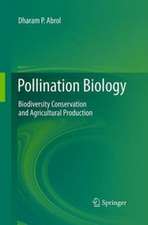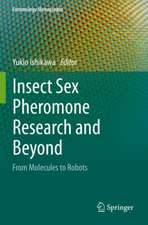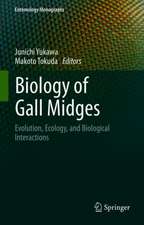Pollination Biology, Vol.1: Pests and pollinators of fruit crops
Autor Dharam P. Abrolen Limba Engleză Hardback – 28 noi 2015
| Toate formatele și edițiile | Preț | Express |
|---|---|---|
| Paperback (1) | 649.54 lei 6-8 săpt. | |
| Springer International Publishing – 23 aug 2016 | 649.54 lei 6-8 săpt. | |
| Hardback (1) | 601.67 lei 38-44 zile | |
| Springer International Publishing – 28 noi 2015 | 601.67 lei 38-44 zile |
Preț: 601.67 lei
Preț vechi: 752.09 lei
-20% Nou
Puncte Express: 903
Preț estimativ în valută:
115.14€ • 125.03$ • 96.72£
115.14€ • 125.03$ • 96.72£
Carte tipărită la comandă
Livrare economică 18-24 aprilie
Preluare comenzi: 021 569.72.76
Specificații
ISBN-13: 9783319210841
ISBN-10: 331921084X
Pagini: 340
Ilustrații: XXIX, 452 p.
Dimensiuni: 155 x 235 x 27 mm
Greutate: 1.08 kg
Ediția:1st ed. 2015
Editura: Springer International Publishing
Colecția Springer
Locul publicării:Cham, Switzerland
ISBN-10: 331921084X
Pagini: 340
Ilustrații: XXIX, 452 p.
Dimensiuni: 155 x 235 x 27 mm
Greutate: 1.08 kg
Ediția:1st ed. 2015
Editura: Springer International Publishing
Colecția Springer
Locul publicării:Cham, Switzerland
Public țintă
ResearchCuprins
1.Introduction.- 2. Pollination and fruit productivity.- 3. Pest problems in fruit crops.- 4. Pome Fruits.- 5. Stone fruits.- 6. Nuts.- 7. Berry fruits.- 8. Tropical fruits.- 9. Subtropical Fruits.- 10. Plantation Crops.- 11. Research needs for better fruit productivity.
Notă biografică
Professor and Head, Division of Entomology, Sher-e-Kashmir University of Agricultural Sciences and Technology of Jammu is a known apiculture scientist and Entomologist of national and international repute. Dr. Abrol has authored 14 books, 8 manuals and published over 200 original research papers, 10 reviews, 20 book chapters and over 64 popular articles on honeybee diseases pollination biology, toxicology and integrated pest management. He has chaired several national and international symposia/conferences and delivered lead/guest lectures. He is a member of several scientific societies in India and abroad. He is referee of the various national and international Journals and expert in various selection/screening and evaluation committees of scientific bodies /institutions of the country. He has completed several externally funded research projects and has collaborative research projects with international organizations in Poland and Switzerland. He has visited South Korea, Malaysia and several other countries as special invitee to these countries. Besides receiving letters of appreciation from different organizations, he is recipient of Young Scientist Award - 1992 conferred by the Jammu and Kashmir State Council for Science and Technology -a prestigious State Award for his outstanding contributions in the field of Agricultural Sciences. Besides, he is also recipient of Pran Vohra Award- 1993 - a prestigious Young Scientist Award conferred by Indian Science Congress Association Calcutta for his outstanding and innovative research in the field of agricultural sciences. He was also conferred Prof. T. N. Ananthakrishnan Award 1997-1998- a prestigious National Award for his outstanding contributions in the field of Entomology by T N Ananthakrisnan Foundation, G .S Gill Research Institute Chennai. He won Dr. Rajinder Prasad Puruskar 1999-2000 - a prestigious National Award from Indian Council of Agricultural Research New Delhi for his Hindi book on beekeeping entitled “Madhmakhi Palan- Sidhant Evam Vidhian " and 11th Apicultural Association Award-2010 for outstanding contributions in Apiculture.
Textul de pe ultima copertă
This volume integrates two diverse yet mutually linked organisms for the benefit of quality and quantity production of horticultural crops. It attempts to fill the gap by providing the synthesis and critical analysis of different management strategies having bearing on agriculture, sustainability and environmental protection and pollination needs of different crops which result in boosting quality and productivity. This book scores over other similar books published in the world by offering many innovative features. There is no comprehensive book available on the subject which could integrate production inhibiting and production promoting components for sustainable and enhanced productivity in horticultural crops. The compilation of this book is unique in the sense that it does not deal with the conventional way of discussing pest management for different crops but also takes into consideration the role of pollinators and their profitable utilization in the larger context of ecologically based pest management for management of pests on one hand and safety of pollinators on the other. The information provided in this book will be useful to pollination biologists, honeybee biologists in entomology departments, students, teachers, scientists of agriculture, animal behavior, botany, conservation, biology, ecology, entomology, environmental biology, forestry,genetics, plant breeding, horticulture, toxicology, zoology, seed growers and seed agencies.
Caracteristici
Pollination requirements of different fruit crops grown in tropics, subtropics and temperate discussed at one place Strategies to increase productivity through planned pollination Pests problems in different crops
